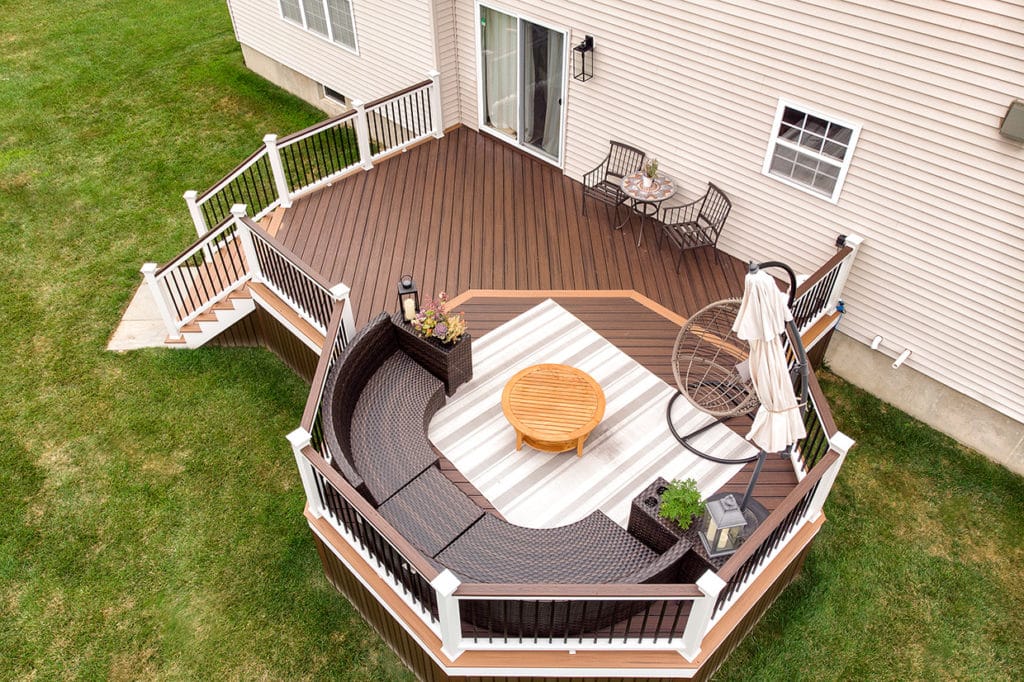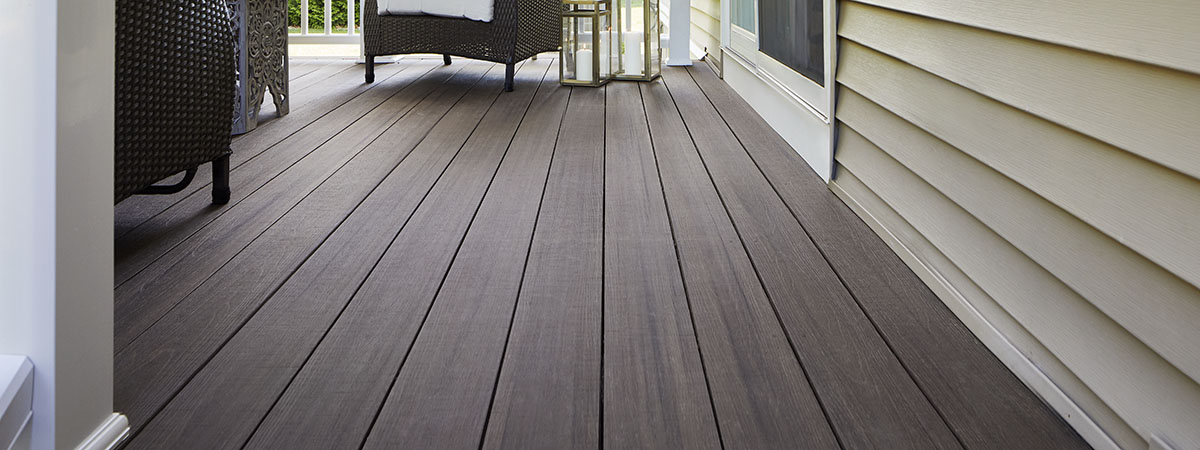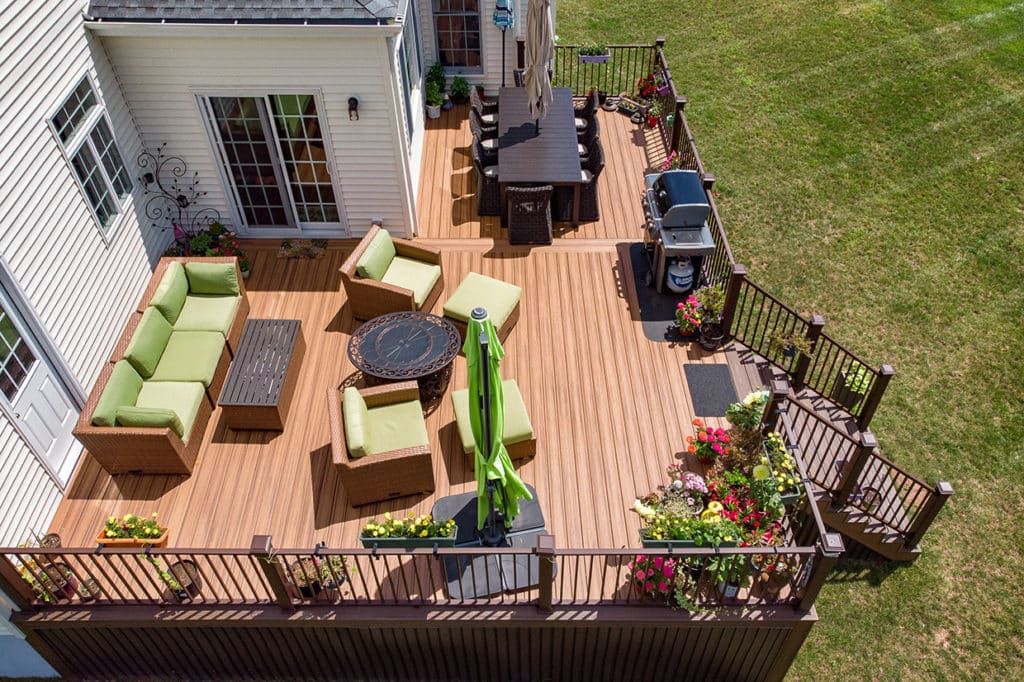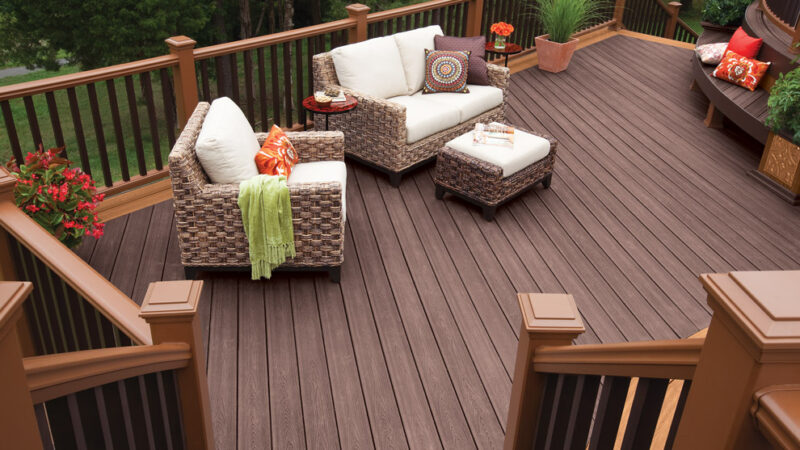Having a backyard deck is an excellent way to enjoy the outdoors and entertain guests. But with so many different materials available, it can be hard to know which one will work best for your home. That’s why working with a professional deck builder is essential. They are experienced in helping homeowners explore various options and find the perfect solution for their outdoor needs.
With attention to quality, durability, and budget, you can trust that a professional deck builder, such as https://decksforlife.ca/deck-builder-in-mississauga/, has your best interests in mind when it comes to selecting materials for your new backyard oasis.
Analyzing Pros and Cons of Wood vs Composite Decks

When it comes to building a deck, homeowners have two main materials to choose from: wood and composite. Each offers pros and cons that should be taken into account before selecting the material for your backyard deck. Wood decks are often popular due to their natural beauty, but they require more upkeep than composite decks.
Composite decks are designed for long-term use with minimal maintenance requirements, but they may not fit the aesthetic of some properties as well as wood. This article will analyze both options in detail so you can make an informed decision about which material is best for your home’s needs. Wood Decks offer a classic look that many people enjoy when looking at their backyards or outdoor spaces in general.
They also tend to be cheaper initially than composite decks as well as easier to work with during installation; however, they require much more care over time due to rotting, warping, and splintering if left exposed to the elements or not sealed correctly. Additionally, pressure-treated lumber used in most wooden decks contains chemicals like arsenic which could potentially pose health risks if it isn’t properly disposed of after demolition or replacement of the deck has been completed. On the other hand, Composite Decks offer a modern look while requiring less maintenance than wood boards since they don’t need regular sanding and staining/sealing treatments every few years as traditional timber does – plus there’s no risk of exposure to hazardous chemicals like those mentioned previously with treated woods either!
However, these benefits come at a cost; composite boards generally cost more upfront compared to standard lumber materials going into construction projects such as backyard decks (but this expense can potentially save money in the long run). In addition, composites may not always fit everyone’s taste aesthetically since their plastic-like texture doesn’t quite replicate real wood grain patterns found on typical timber planks used throughout residential landscapes nowadays either!
Investigating Eco-Friendly Deck-Building Options

Investigating eco-friendly deck-building options is an important part of any backyard deck project. For homeowners looking to build a new outdoor living space, numerous sustainable materials can be used to create the perfect retreat. Wood decks are one of the most popular choices for their natural beauty and strength; however, other materials such as composite or recycled plastic provide low-maintenance and long-lasting durability while still achieving a beautiful aesthetic.
Homeowners should explore all available options before deciding to find the best solution that fits their needs while also protecting the environment. Additionally, it’s beneficial to consult with an experienced builder who understands how various materials interact with each other during construction and how they will perform over time in different climates. By considering these factors ahead of time, homeowners can ensure they choose the right material for their dream deck without sacrificing sustainability.
Comparing Maintenance Requirements for Various Decking Types

When it comes to comparing maintenance requirements for various decking types, there are a few important factors to consider. Wooden decks require regular staining and sealing to protect them from the elements. Composite decks can also need some occasional cleaning, but they don’t require as much upkeep as wood decks do.
PVC and other plastic-based materials offer superior durability but may be more prone to fading or cracking over time if not properly maintained. Additionally, aluminum decks have very low maintenance requirements and are resistant to rusting or rot; however, they tend to be more expensive than most other options on the market.
Ultimately, any backyard deck builder should weigh all of these factors carefully before deciding on which type of decking is best suited for their individual needs.
Conclusion

Backyard Deck Builders can be a great resource for anyone looking to explore different deck materials. With their expertise and knowledge, they can help you find the perfect material that fits your vision and lifestyle.
Whether it’s wood, composite, or PVC – there are a variety of options available when working with a Backyard Deck Builder. So if youre interested in finding the best deck material for your outdoor space, get in touch with a professional Backyard Deck Builder today!


